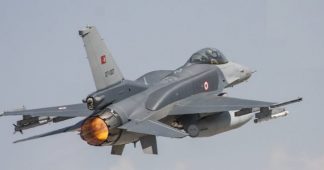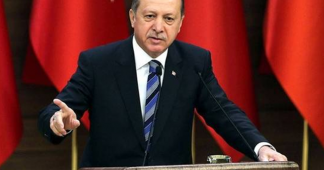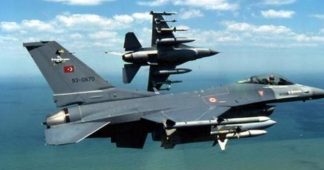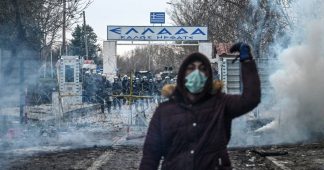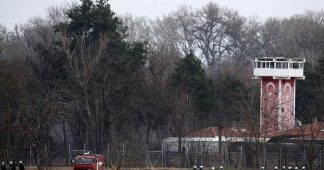The great Turkish poet Nazim Hikmet gave the following interview to an editor of the Greek section of the Budapest Radio Station.
Nazim Hikmet first refers to the national revolution of the Greek people in 1821. And he continues:
On the occasion of his national holiday, I send a warm greeting to my friend the Greek people.
In 1821, the Greek people fought for their national independence against the Turkish sultans who oppressed the Turkish people. In his struggle there were also traitors.
In 1919, the Turkish people fought for their national independence against the imperialists and the Greek reactionaries who also oppressed the Greek people. In this struggle the Turkish people had traitors.
Now, in 1955, both peoples are fighting for their national independence against the Americans and their allies.
The fate of our peoples is common.
Today, Greece and Turkey are closely united. Both peoples are waging a common struggle against the American invaders and their local agents for their national independence, their democratic freedoms, and their peace.
If one judges the situation with a realistic eye, one will see that our Greek brothers are at the forefront of this common struggle.
They are currently more successful than we are and they are making the greatest sacrifices. For us, for the people of Turkey, for the Turkish intellectuals, the example of our Greek friends stands as a high bright example. It is true that the light that comes to us from Greece is mixed with the blood of our Greek brothers. Nevertheless, it is a message of optimism for us.
And for us in Turkey, the prisons are full of independence fighters. However, I repeat that the importance of our common struggle is today in the hands of our Greek brothers. I personally feel the deepest admiration for the Greek people, for their heroic sons and daughters.
We need to create closer ties between our peoples. Not the bonds that common American chains make. We need to forge closer ties in our common struggle. To create greater bonds between our intellectuals. Despite the American terrorism that prevails in Turkey, we have writers, poets, novelists, short story writers who are truly patriots and democrats. They sometimes have the opportunity to publish their works legally.
As far as I know, the same exists in Greece. I think that the intellectual exchanges and a mutual acquaintance of the progressive literature of the two countries would be beneficial. At least some translations of progressive works of the two countries could be done.
At this point our author tells Nazim Hikmet that many of his poems are well known and loved in Greece and Cyprus and that the publishing house “New Greece” has published a collection of his poems in Greek.
To our author’s question about the slogans for “Greater Turkey” that are circulating in Turkey, while similar chauvinistic slogans are cultivated in the press, Nazim Hikmet answers:
The “Greater Turkey” to us, as well as the “Greater Idea”, that is, the Greater Greece to you is the “great love” of the imperialists and their lackeys. They are theories that are fed from outside and that have nothing to do with the interests of our peoples. E.g. For us, there was a time when the idea of a “Greater Turkey” was introduced by German imperialism.
As far as I know, in Greece, the idea of “Greater Greece” was fueled by British imperialism. Thus, our two peoples, who could live peacefully, bled to each other.
Today, the sermons of “Greater Turkey” and “Greater Greece” serve the Americans. Americans do not export our country only their culture of gangsterism and pornography and the FBI methods of torturing patriots. They also come up with theories that can serve their purpose.
Asked about his current literary work, Nazim Hikmet said:
I am very interested in theater and, lately, I am working on writing plays, some of which were performed in the Soviet Union, Czechoslovakia, Poland and will soon be performed in Vienna. I also continue to write poems.
To the last question of our collaborator about his impressions from Hungary, the great Turkish poet answered:
I wrote 4-5 poems about Hungary. I write when I hate something or when I love something very much. In art and feelings there is no middle ground, there are extremes, either you love or you hate. The poems I wrote about Hungary are an expression of my love for her. I love her so much that I would like to sing her in many more poems, without ever thinking that it will be enough.
Published in the “People’s Struggle”, Organ of the Refugees of Greece in the People’s Republic of Hungary, Year E ‘, page number 86, Tuesday, March 29, 1955, p.2.
